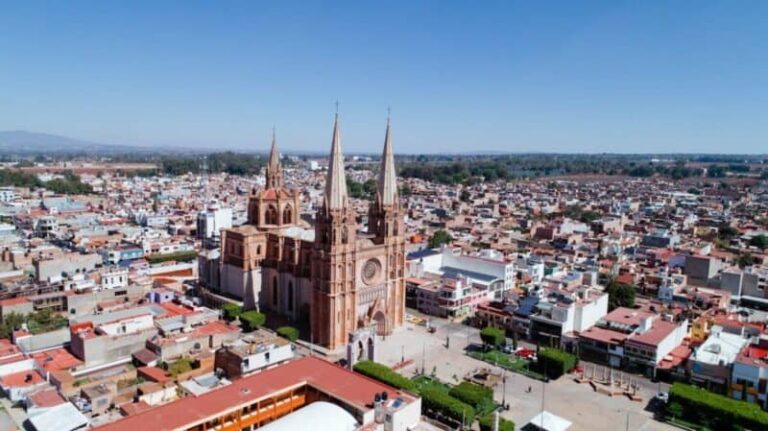Saint Bonaventure 13th Century with many Things Named after him
Saint Bonaventure was born in 1221 and died July 15, 1274. He was an Italian Catholic Franciscan bishop, cardinal, scholastic theologian, and philosopher. He was the seventh Minister General of the Order of Friars Minor; Saint Bonaventure also served as Bishop of Albano. He is a doctor of the Catholic Church who wrote many books. He left quite a legacy, which is why he is so noteworthy. Indeed, he was one of the leading authors of the Middle Ages. He has many things, including a college in New York State, named after him. Have you visited that college?
Saint Bonaventure Biography

Saint Bonaventure was born near the Papal States. We know almost nothing about his childhood. He reports that in his youth, he was saved from an untimely death by the prayers of Francis of Assisi. He enrolled in the Franciscan Order in 1243 and studied at the University of Paris, maybe under Alexander of Hales, and certainly under Alexander’s successor, John of Rochelle.
In 1253, he was the Franciscan chair at Paris. A dispute between seculars and mendicants occurred in 1257; in mediating it, he became friends with Thomas Aquinas. Saint Bonaventure also met and was a friend of Cardinal Hugh of Saint-Cher, who influenced him. After having successfully defended his order against the reproaches of the anti-mendicant party, he was elected Minister General of the Franciscan Order. On November 24, 1265, he was selected for the post of Archbishop of York; however, he was never consecrated and resigned the appointment in October 1266.
Saint Bonaventure was important in the election of Pope Gregory X, who rewarded him with the title of Cardinal Bishop of Albano and insisted on his presence at the great Second Council of Lyon in 1274. There, after his contributions led to a union of the Greek and Latin churches, he died suddenly and under suspicious circumstances. He may have been poisoned.
Saint Bonaventure Writings
Saint Bonaventure wrote more than twenty books in his lifetime. He is regarded as one of the greatest philosophers of the Middle Ages. His works, as arranged in the most recent Critical Edition include a Commentary on the Sentences of Lombard, in four volumes, and eight other volumes, including a Commentary on the Gospel of St Luke and several smaller works; the most famous of which are The Mind’s Road to God, a Reduction of the Arts to Theology, and a Soliloquy on the Four Spiritual Exercises (Soliloquium de quatuor mentalibus exercitiis).
Many Things Named after Saint Bonaventure
A great many things are named for Saint Bonaventure. There are, in fact, too many things to list. There are 21 churches around the world named for him. There are 24 schools named after him, including a college in Allegany, New York. There are many churches named for him. Also, towns and roads around the world are named for him. The list of places named for him is too long to reproduce. It is fair to wonder why so many things are named for him.
Theological Guidance
One of the things we can look to Saint Bonaventure for is theological guidance. He is an authority on the subject and has written several books about it. Emanationism, exemplarism, and consummation are explicitly listed by him as the core principles of theology, all of which are heavily Platonic themes and carry equally Platonic subtopics and discussions but yet are all rooted in the second Person of the Trinity, the Son, incarnate as Jesus Christ, who is the ‘principio’ of divine exemplars, from which creation emanates and by which creation is made intelligible and which creation finds as its goal.
Creation is two-fold, expressing the divine truth, the divine exemplar in the Word of God; it “speaks” of that which it is the likeness and subsists in itself and in the Son. Saint Bonaventure’s mature work, the Collationes in Hexaemeron, takes exemplarism, drawn out from his transformation of Platonic Realism, as the basis for vital points of Christian theological dogma: God’s love of creation, God’s foreknowledge, providence and divine governance, the unconstrained but perfect will of God, divine justice and the devil, the immortality of and uniqueness of human soul, and the goodness and beauty of creation.
Conclusion
Saint Bonaventure’s feast day was included in the General Roman Calendar immediately upon his canonisation in 1482. The feast day was at first celebrated on the second Sunday in July, but was moved in 1568 to July 14th, since July 15, the anniversary of his death, was at that time taken up with the feast of Saint Henry. He is the patron saint of bowel disorders, which is a little odd. He was a prolific author and is one of the doctors of the church. We know of him because he wrote so much and has so many things named after him.








